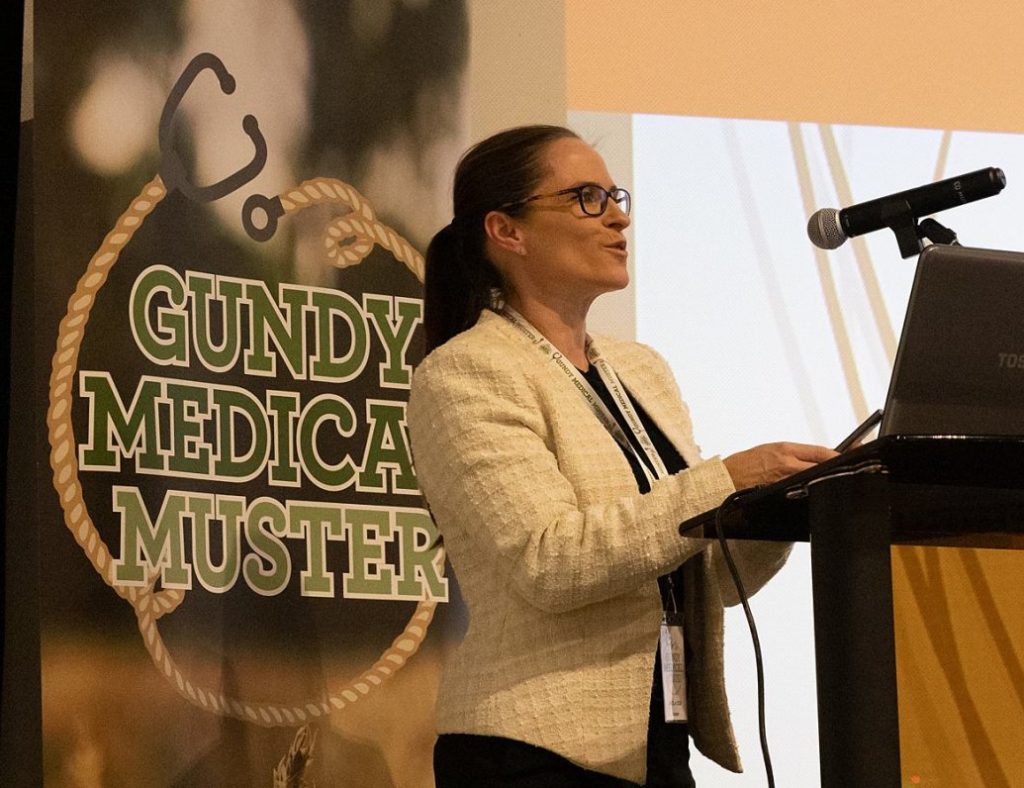January 27, 2021
What Australia’s vaccine roadmap means for GPs
UPDATED: Will GPs be considered frontline healthcare workers? Will they have a role in aged care? RACGP President Dr Karen Price provides some insight.
Phase 1a of the roadmap will see priority groups receive the vaccine, including 100,000 frontline healthcare workers. (Image: AAP)
This article has been updated to incorporate further information provided by the Department of Health.
GPs will be part of the second group of frontline healthcare workers to receive a COVID vaccine, according to the Federal Government’s vaccine rollout plan.
The rollout, fast-tracked to begin mid-February, will be conducted in three phases, beginning with 1.4 million doses of the Pfizer/BioNTech candidate for priority populations, pending approval from the Therapeutic Goods Administration (TGA).
There were many questions following the release of Australia’s Epidemiology and COVID-19 Vaccine Roadmapon Thursday, but a recent clarification from the Department of Health (DoH) has now confirmed GPs will not be among those to receive COVID-19 vaccines in the first weeks of the Government’s rollout.
TGA boss John Skerritt has said it is ‘highly likely’ the Pfizer/BioNtech candidate will be approved in the next few weeks, after which phase 1a of the roadmap will begin, starting with the vaccination of 100,000 frontline healthcare workers, 318,000 aged care and disability care staff and 190,000 residents, along with 70,000 quarantine and border workers.
GPs will be part of phase 1b, when 953,000 additional healthcare workers are expected to be inoculated.
RACGP President Dr Karen Price, who has been engaged in talks with the DoH regarding the vaccine rollout, toldnewsGP that while National Immunisation Committee member Associate Professor Penny Burns has been advocating that GPs are frontline healthcare workers, there is an argument that doctors in hospitals working on COVID wards are a more significant priority.
Victorian DHHS statistics released in August last year showed nearly three quarters of the 2450 cases in healthcare workers in the state’s second wave were in hospitals or aged care. Only 1.5% were linked to staff at general practices.
‘What I will say to people who want to argue that they feel affronted if they’re not 1a, is that this is going to be rolled out very quickly,’ Dr Price said.
‘It’s not going to be something that’s going to take months between 1a and 1b; it’s a question of maybe a week or two.
‘As John Skerritt said to me, this is a “wartime effort” to get everyone vaccinated and GPs are very much up there, virtually near the top. So I think we’ve got to feel comfortable about that.’
Administration to priority groups will initially take place through vaccination hubs, set up across 30–50 hospital sites in metro and regional areas, as well as disability and aged care facilities.
This will then expand to more than 1000 points of distribution, including larger GP-led respiratory clinics, general practices, Aboriginal Controlled Community Health Services, and state vaccination clinics.
Dr Price said GPs can anticipate further clarity from next week, but said she expects general practice to be involved from phase 1b.
‘I would say we’re still on track for GPs being involved with the vaccinations from early March,’ she said.
‘There’s got to be expressions of interest, and there’s got to be some education that’s rolled out before that. There’s also got to be certification, and there’ll be TGA minimum requirements to administer COVID vaccines and so forth.
‘But definitely all GP practices need to be thinking about how they’re going to do it.’
Asked whether GPs will be involved in the phase 1a vaccine rollout to aged care residents, Dr Price indicated that it appears unlikely.
‘The Department said to us on Wednesday that they are looking to have a very specific approach to aged care – both workers and residents – and it sounded to me like they were going to have some kind of in-reach program,’ she said.
‘So that doesn’t sound like the GPs are involved, which is a bit challenging because GPs know these patients and could probably do it quickly.
‘It’s going to be open to expressions of interest, [but] there wasn’t any clarity around who it would be.’
What the President did emphasise, however, is that the RACGP is in continued negotiations with the Government to ensure adequate funding for the rollout.
‘We’ve heard whispers that there will be a specific Medicare item number, which will help with audit for Government – but that’s whispers. It’s got to go before Cabinet because this is obviously a hugely costly exercise for the Australian taxpayer,’ Dr Price said.
‘We are advocating for a decent item number, a level B at least, and an infrastructure payment because we recognise there’s going to perhaps be refrigeration needs, there’s going to be extra staff needs, and general practice still needs to operate whilst we’re administering vaccines. So this is an added business and it needs funding.
‘We can’t have practices falling over financially, so we are going to be advocating very strongly that there is a payment that’s appropriate to the gravity of the circumstances.’
Following phase 1a of the rollout, phase 1b will see 14.8 million doses administered to 953,000 additional healthcare workers, along with adults aged 70 and over, Aboriginal and Torres Strait Islander people aged 55 and over, younger adults with a disability or other medical condition, and critical and high-risk workers.
Next in line under phase 2a will be people aged 50 and over, Aboriginal and Torres Strait Islander people aged 18–54, and other critical and high-risk workers.
The rest of the adult population will receive the vaccine during phase 2b, and those aged under 18 will be the final cohort to receive the vaccine under phase 3, pending recommendations.
Following mounting pressure to fast-track the vaccine rollout, Prime Minister Scott Morrison announced on Thursday the timeline for priority groups would be brought forward. Dr Price was among those who cautiously welcomed the news.
‘If it occurs, yes, I am pleased. Personally, I would have liked everyone to be vaccinated by the end of last year if I could have my wish list,’ she said.
‘But it does mean that general practice is now deep into logistics planning, and what I haven’t seen too much of is the detail that we need to do that logistics planning. So if they’re going to have an early date, we need the logistics because we’ve got to provide for our staff, for our existing patients and for the huge undertaking we’re about to go through.
‘If they’re going to bring it forward, fine. But let’s have the details, now.’
Origional article Source: https://www1.racgp.org.au/newsgp/professional/what-australia-s-vaccine-roadmap-means-for-gps





